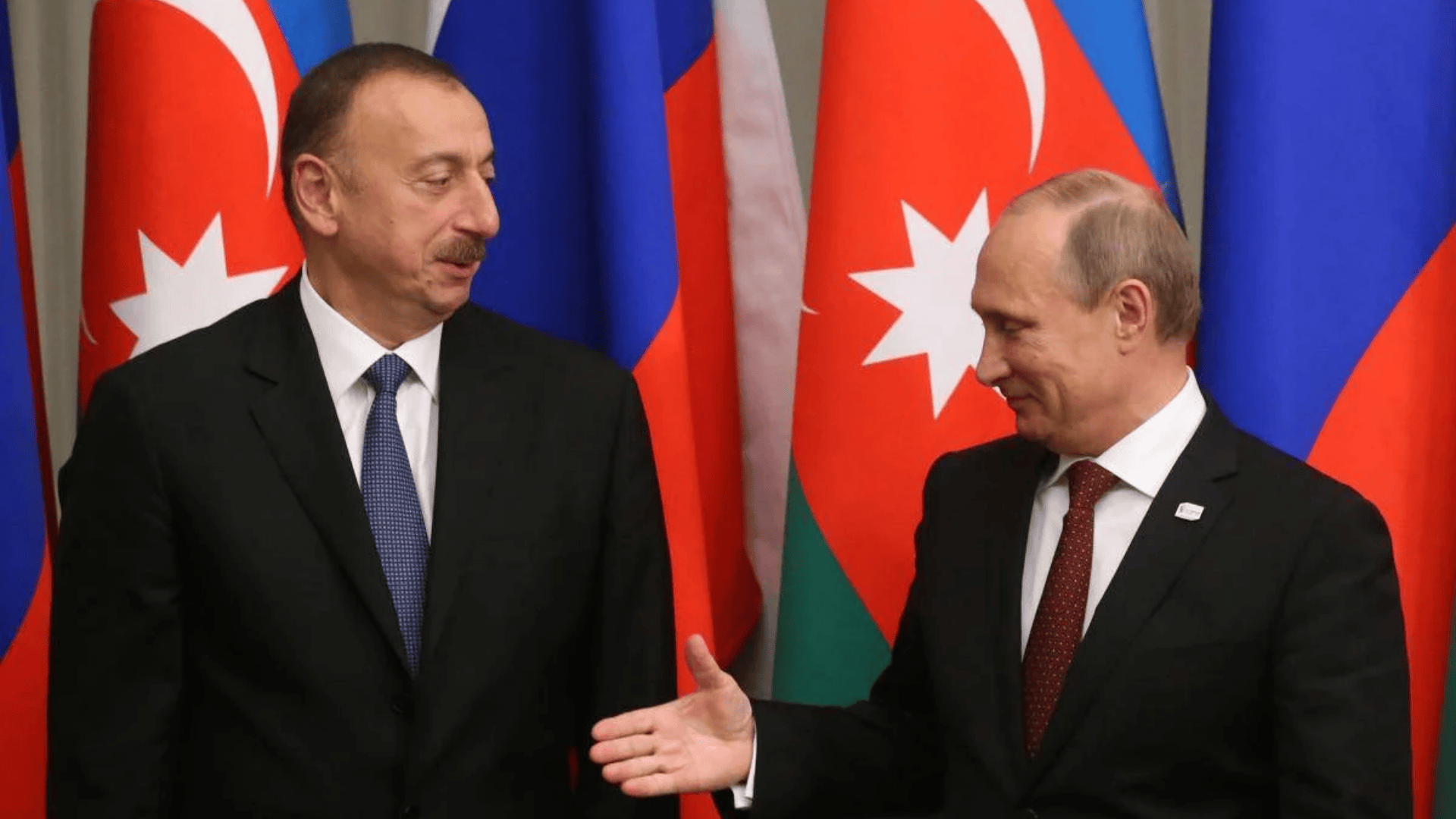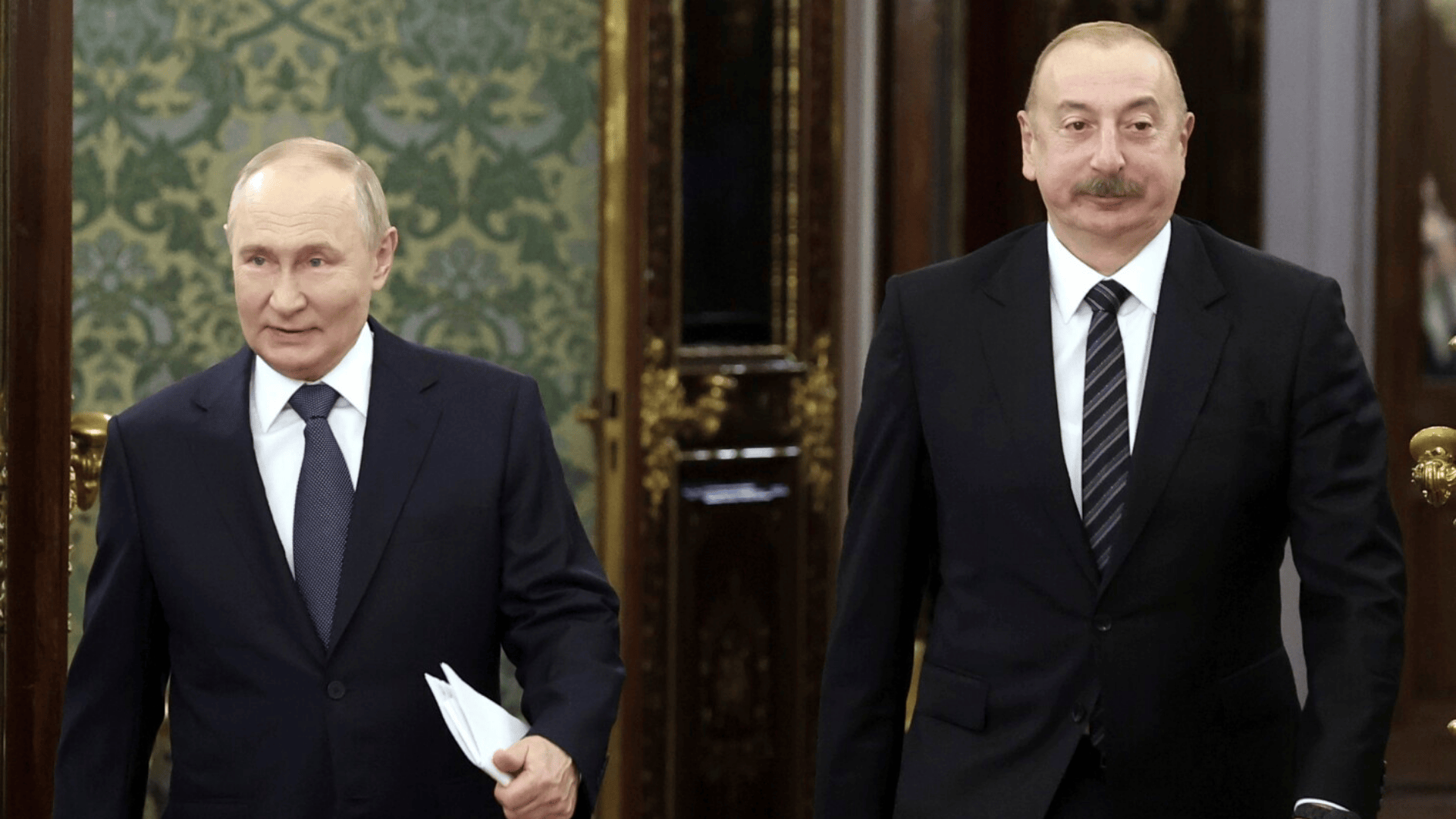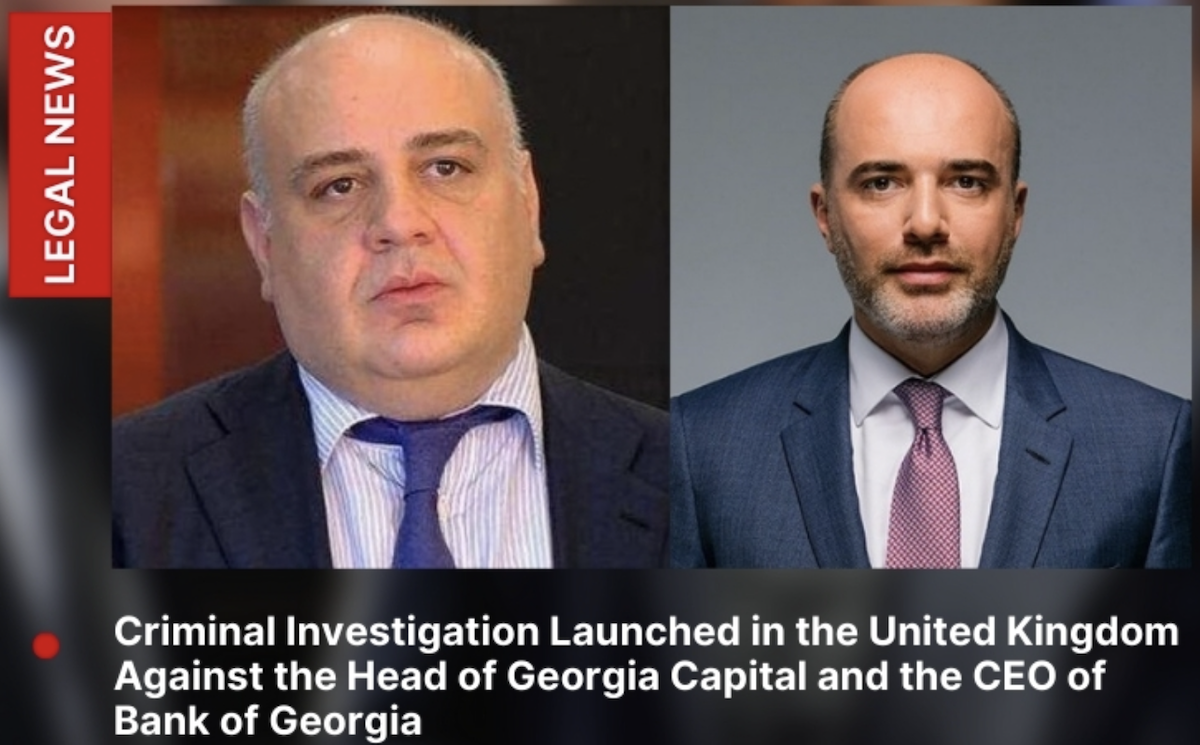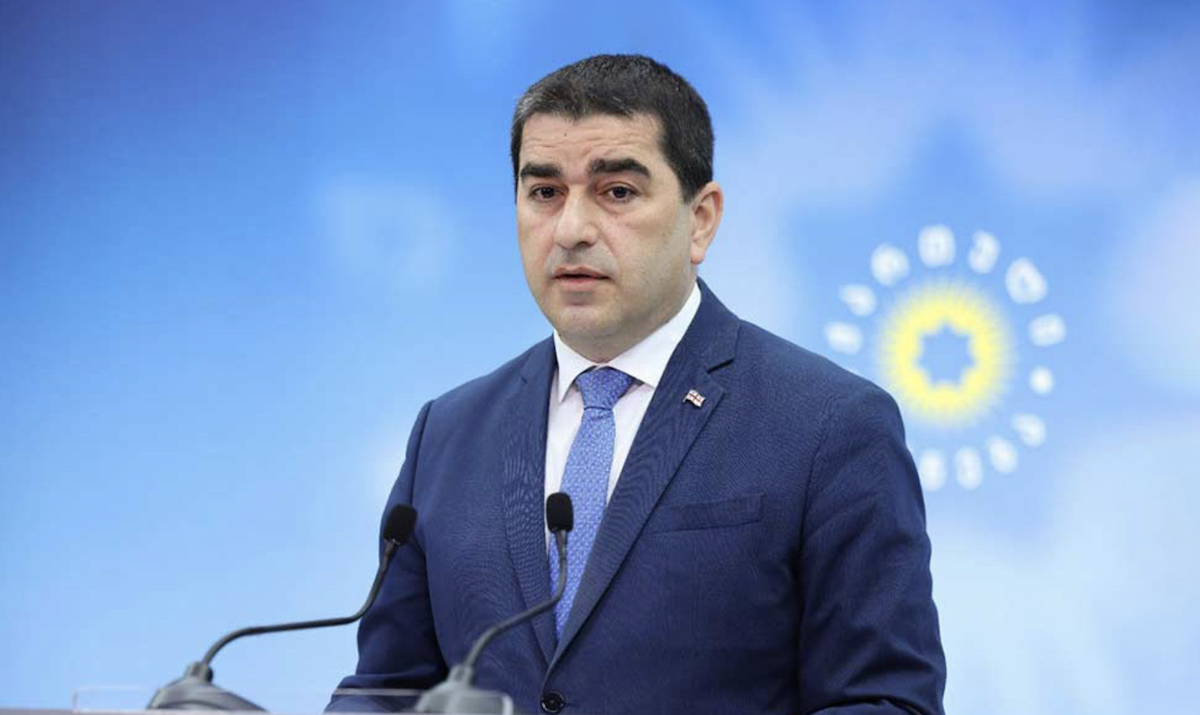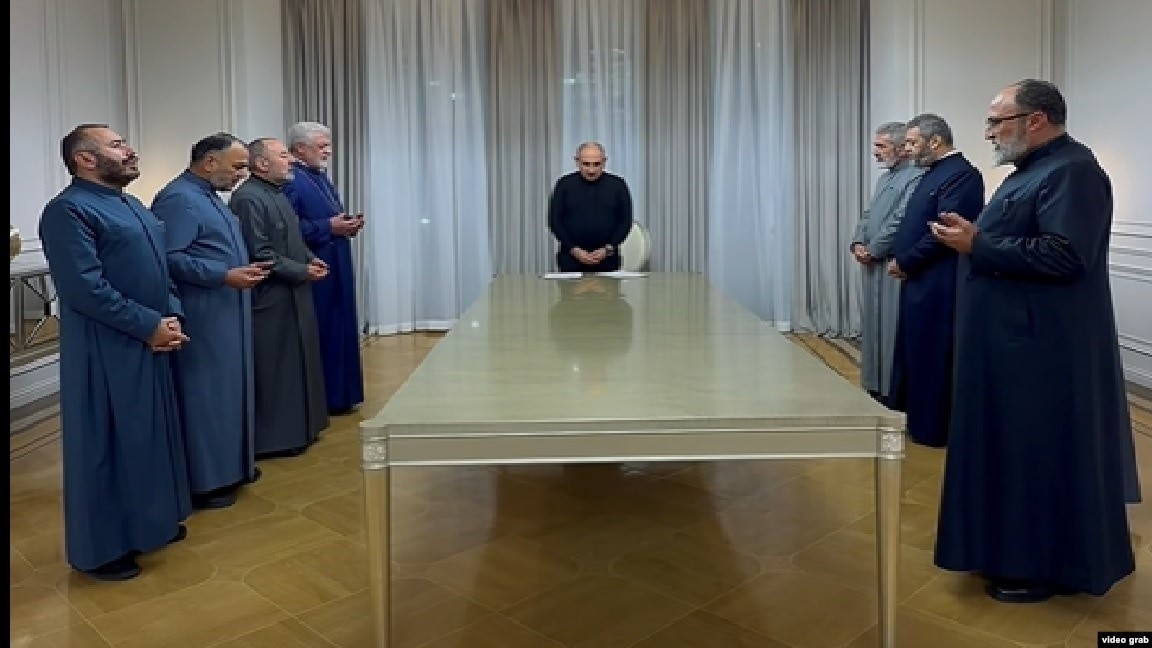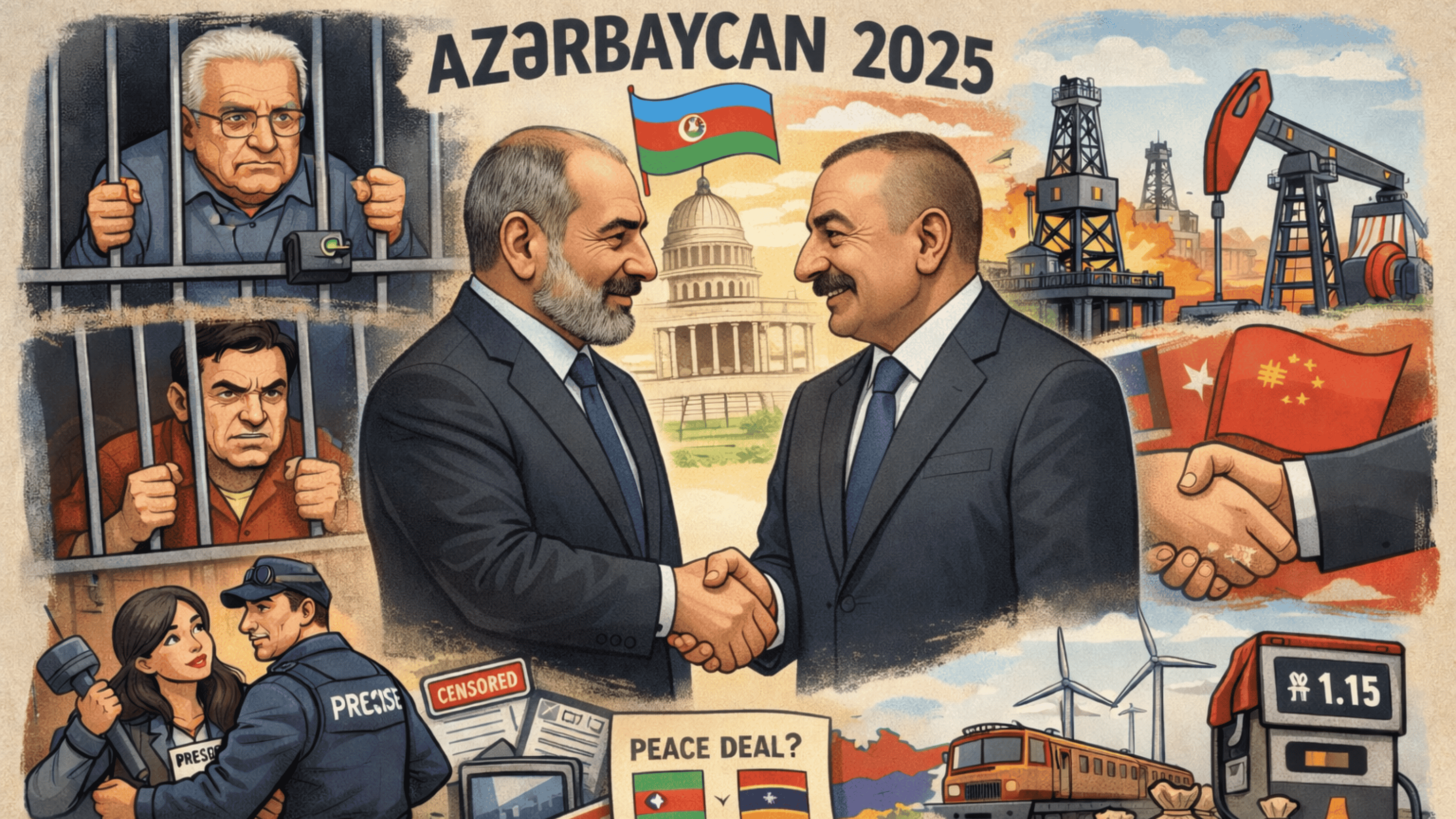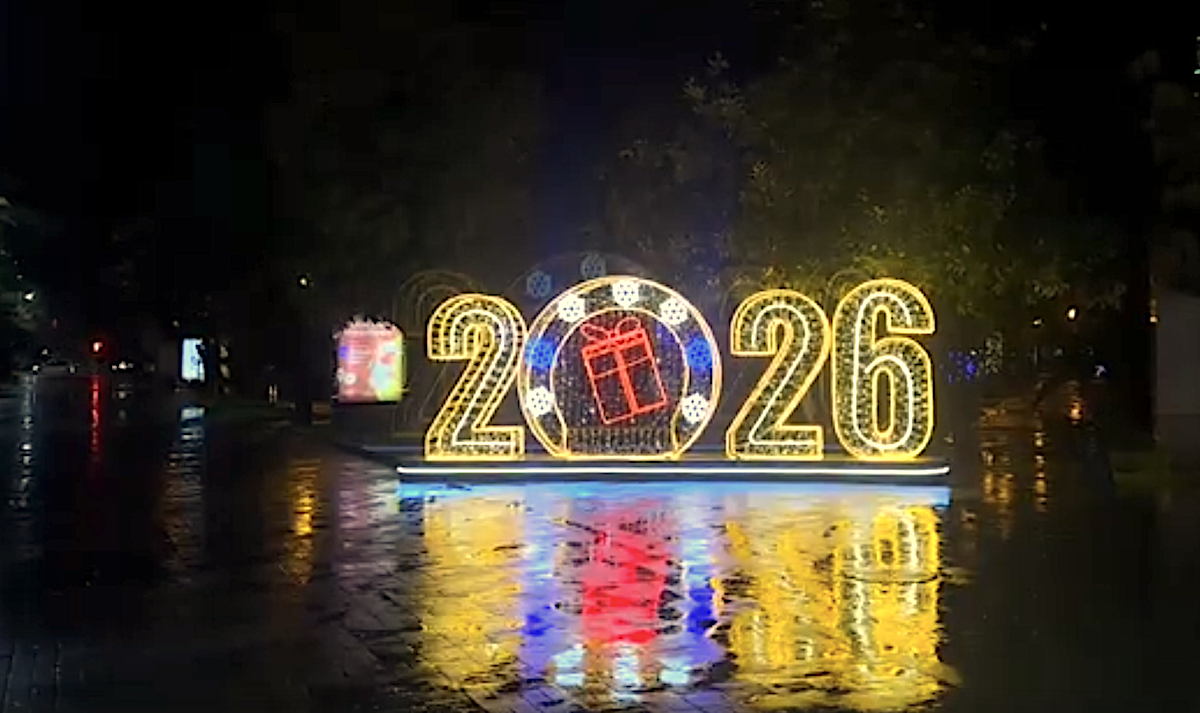Ilham Aliyev on the lawsuit against Russia, his meeting with Nikol Pashinyan, the Zangezur corridor, and more
The president of Azerbaijan accuses Russia
On July 19, Azerbaijani president Ilham Aliyev spoke at the media forum in Karabakh, addressing key topics such as regional connectivity, the Zangezur corridor, and relations with Armenia and Russia.
The Global Media Forum, held for the third year in Shusha, is seen as an international platform. This year, it gathered 140 participants from 52 countries under the theme: “Digital transitions: strengthening information and media resilience in the age of AI.”
Experts believe the forum helps Azerbaijan promote international legitimacy for territories regained after the second Karabakh war. However, many also see it primarily as an ideological tool for the government.
This year’s highlight was a session where Aliyev delivered major policy messages to an international audience, outlining Azerbaijan’s official stance on regional developments.

Relations with Armenia
While answering questions, President Aliyev addressed the technical and legal details of the peace negotiations with Armenia.
He stated that although a preliminary version of the peace agreement was reached in March 2025, the signing of the document depends on constitutional amendments in Armenia and the official dissolution of the OSCE Minsk Group.
During his speech at the forum, Aliyev expressed clear distrust toward Armenia.
He recalled Nikol Pashinyan’s 2019 statement in Shusha – “Karabakh is Armenia, period” – and said he remains cautious about recent remarks by the Armenian leadership:
“Back then, they said: ‘Karabakh is Armenia.’ That statement marked the beginning of their current troubles. Now they say Karabakh should have long been recognized as part of Azerbaijan. It should have. I told them so in 2018 and 2019. I warned them things would get worse.
Our position has never changed. In 2003 I said Karabakh is our land, and I’ve said the same for the past 22 years. But the Armenian position has changed. So what guarantees it won’t change again?”
According to Ilham Aliyev, Armenia’s true intentions can only be judged through practical steps.
“Such a guarantee must come in the form of internationally binding legal documents that, as I told Prime Minister Nikol Pashinyan during our meeting in Abu Dhabi, must slam shut the coffin lid on separatism.
Armenia says the Karabakh issue is no longer on the agenda. In that case, the Minsk Group should also be removed from the agenda, as it was created to resolve the Karabakh conflict, which is now over.
Armenia’s constitution must also be amended to remove the independence declaration containing territorial claims against Azerbaijan.
And that’s basically it. The peace agreement text is finalized.”
Speaking about the peace treaty, Aliyev said negotiations started over two years ago but stalled due to Armenia’s attempts to reintroduce the Karabakh issue.
He claimed Armenia accepted the terms only after Donald Trump’s victory:
“During the meeting in Abu Dhabi, I told Mr. Pashinyan: ‘You probably hoped Madam Harris would win, and you’d be back on a white horse — but that didn’t happen.’
I’m absolutely convinced that if Trump hadn’t won, they wouldn’t have agreed to sign the agreement. They wanted more than they deserved and more than they could handle.”
Aliyev also stated that the implementation of agreed points on border delimitation and the opening of transport links remains delayed, accusing Armenia of using these issues as leverage for political bargaining.
Plane downed by Russian air defenses and ties with Moscow
In his speech, President Ilham Aliyev openly accused Russia for the first time of downing the AZAL passenger plane near Aktau, Kazakhstan, on December 25, 2024 – after it was shot down by Russian air defense systems as it approached Grozny, Chechnya.
Until now, the incident had been officially described as a “technical accident.” But Aliyev’s remarks strongly suggested it was a deliberate strike by Russian forces.
“Our AZAL plane was shot down by a missile near Aktau. No one has taken responsibility. This is a gross violation of international law,” he said, comparing it to the MH17 tragedy and warning of possible legal action in international courts.
“This is not just a technical issue,” he added. “We will take this into the legal sphere. Such crimes cannot be forgotten.”
Though Aliyev avoided naming Russia directly, his comments were widely understood as a clear rebuke. “It’s been seven months – no explanation, no accountability. This doesn’t align with strategic partnership.”
The statement marks a sharp departure from the pragmatic tone that had defined Baku–Moscow relations since 2020.
Aliyev now implied the attack may not have been accidental, but a provocation or political message.
He warned that the lack of responsibility poses a threat to Azerbaijan’s sovereignty and said silence is no longer an option: “We must speak out and take legal steps. If international law fails, we must create new legal tools.”
This statement appears to signal the end of the silent consent model that had defined Baku–Moscow relations since 2020.
Zangezur corridor and Armenia’s isolation
President Ilham Aliyev placed special emphasis on the topic of the Zangezur corridor.
This proposed land route is intended to connect mainland Azerbaijan with its Nakhchivan exclave through Armenian territory. Yerevan insists on maintaining control over the section that crosses its land, while Baku demands an extraterritorial corridor with no Armenian checkpoints.
Speaking at the forum, Aliyev stated that the transport route would not only link Azerbaijan with Nakhchivan but could also serve as a “strategic artery uniting the entire Turkic world”:
“This project is not just about Nakhchivan. The Zangezur corridor is an integral part of the Middle Corridor. It is an infrastructure line connecting Turkic states and creating major logistical opportunities.”
Aliyev openly warned that Armenia’s refusal to participate in the project would result in its regional isolation. He emphasized that Armenia’s current passivity would ultimately lead to economic and political self-isolation:
“If Armenia refuses to join the project — that is their choice. We will complete all technical infrastructure on our side by 2026.”
The president’s statement conveyed two key messages:
- Azerbaijan is prepared to implement the Zangezur corridor technically and without Armenia’s involvement;
- By staying out of the project, Armenia risks not only geopolitical but also economic isolation.
Aliyev also outlined specific logistical parameters: the corridor will have a capacity of 15 million tons per year and stretch 43 kilometers. The road will run from Azerbaijan toward Meghri, and the entire project will be financed from Azerbaijan’s state budget.
“We are finishing the infrastructure on our side. The Armenian side is merely observing. Their refusal to join the project means regional isolation.”
In this context, the Zangezur corridor is no longer portrayed as a bilateral issue between Azerbaijan and Armenia but rather as an alternative trade route between Europe and Asia.
“The Middle Corridor has already become an alternative route for energy and trade between Europe and Asia. Armenia can become part of this system — or isolate itself.”
Media, artificial intelligence, and information security
Ilham Aliyev also dedicated significant time to outlining Azerbaijan’s position on the main theme of the Global Media Forum — “Digital transitions: strengthening media and information resilience in the age of artificial intelligence.”
He presented Azerbaijan’s approach to media and information security across three main areas:
1. Media in the service of the state
Aliyev defined the primary role of Azerbaijani media as defending the country’s information sovereignty and countering international information attacks.
In this context, the principle of media freedom is replaced by the goal of protecting state interests.
“There are biased information campaigns being conducted against us. The media must respond — and to do that, they must be armed with facts,” said Ilham Aliyev.
2. Artificial intelligence and a new wave of disinformation
Aliyev warned about the threats posed by artificial intelligence, particularly in the context of deepfakes, digital manipulation, and tools of information warfare.
He identified the spread of disinformation as a threat to Azerbaijan coming from certain Western media outlets.
He stressed that the response to these challenges cannot be purely national:
“As artificial intelligence capabilities grow, so does the scale of information manipulation. Combating this requires international cooperation, as the consequences could pose a real threat to all.”
3. Media literacy and legitimizing propaganda
Aliyev repeatedly emphasized the need for a “fact-based approach,” improved media literacy, and the introduction of information security as a subject in the education system.
He did not comment on the extent to which such initiatives could also be used for expanding state control over information flows or silencing critical views.
Effectively, the model presented by President Aliyev at the Shusha forum abandons the liberal concept of media freedom in favor of a framework based on information sovereignty and security.
Key features of this model include:
- media as a tool to communicate the state’s position and respond to external attacks;
- artificial intelligence as a driver of disinformation requiring a global response;
- criticism framed as “biased foreign influence” and neutralized through that narrative.
This approach is not unique: similar models of “state-centered information security” are already in place in Russia, China, India, and several MENA countries. It now appears to be taking hold in Azerbaijan as well.
News in Azerbaijan










